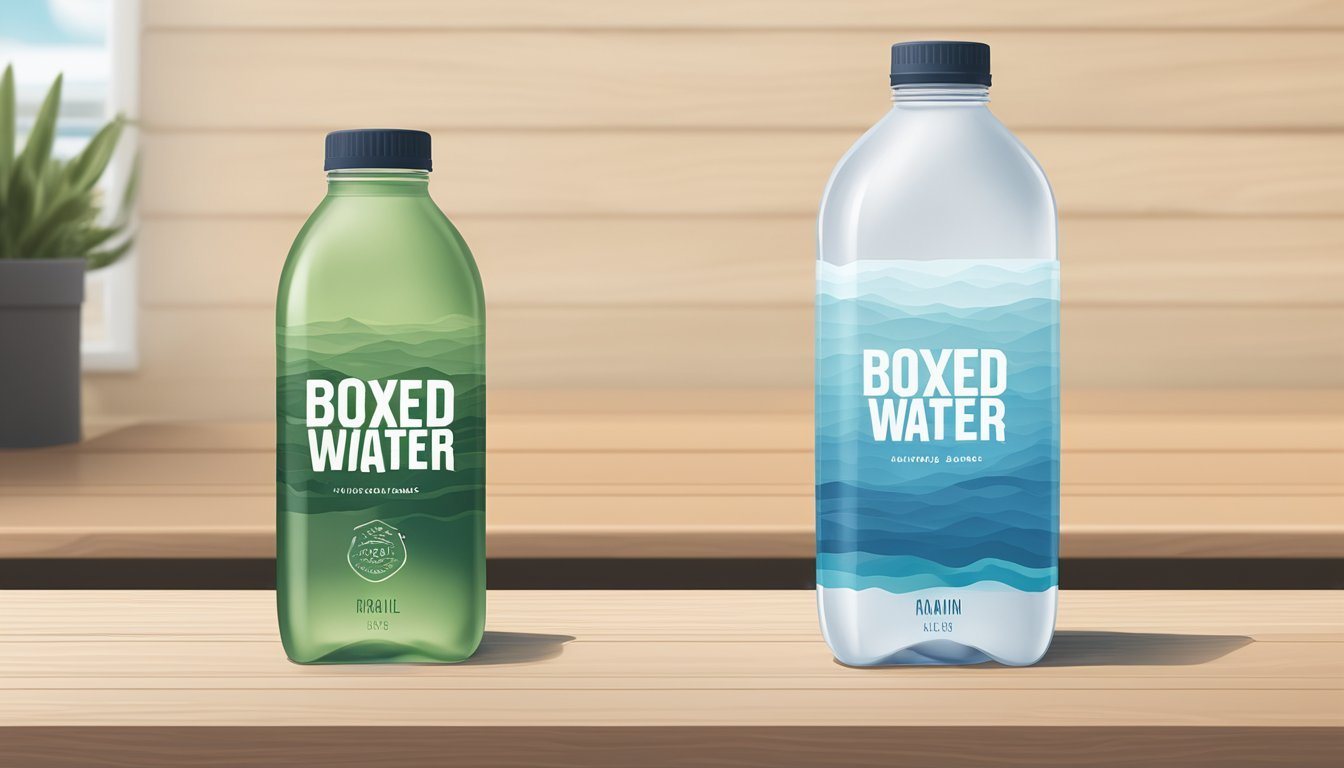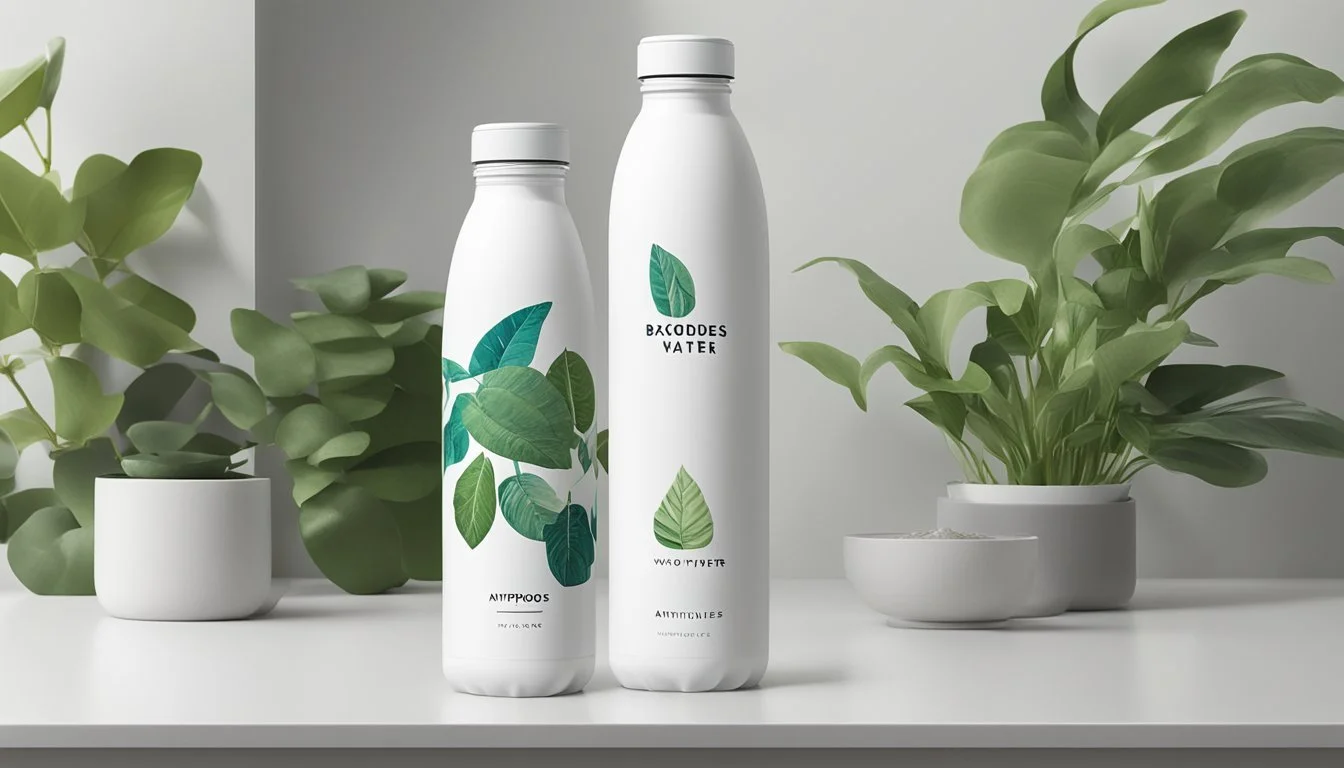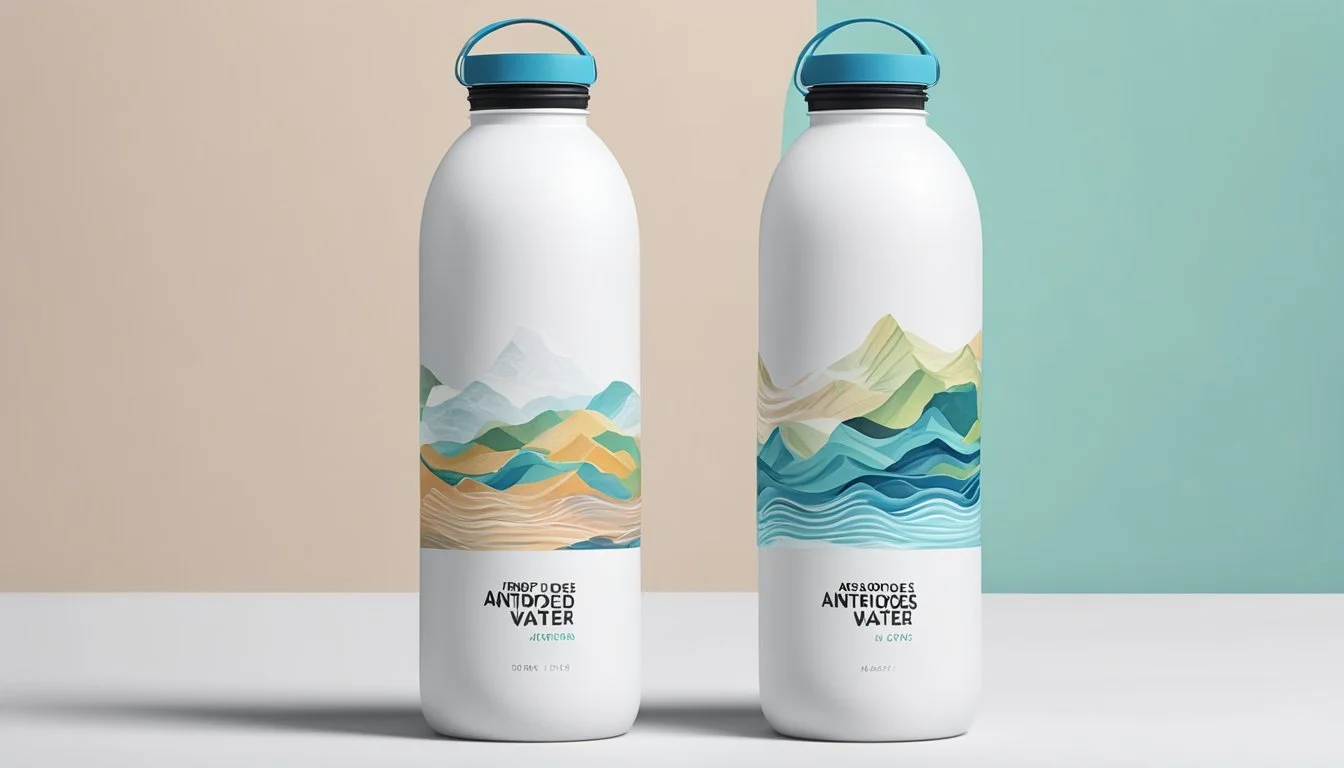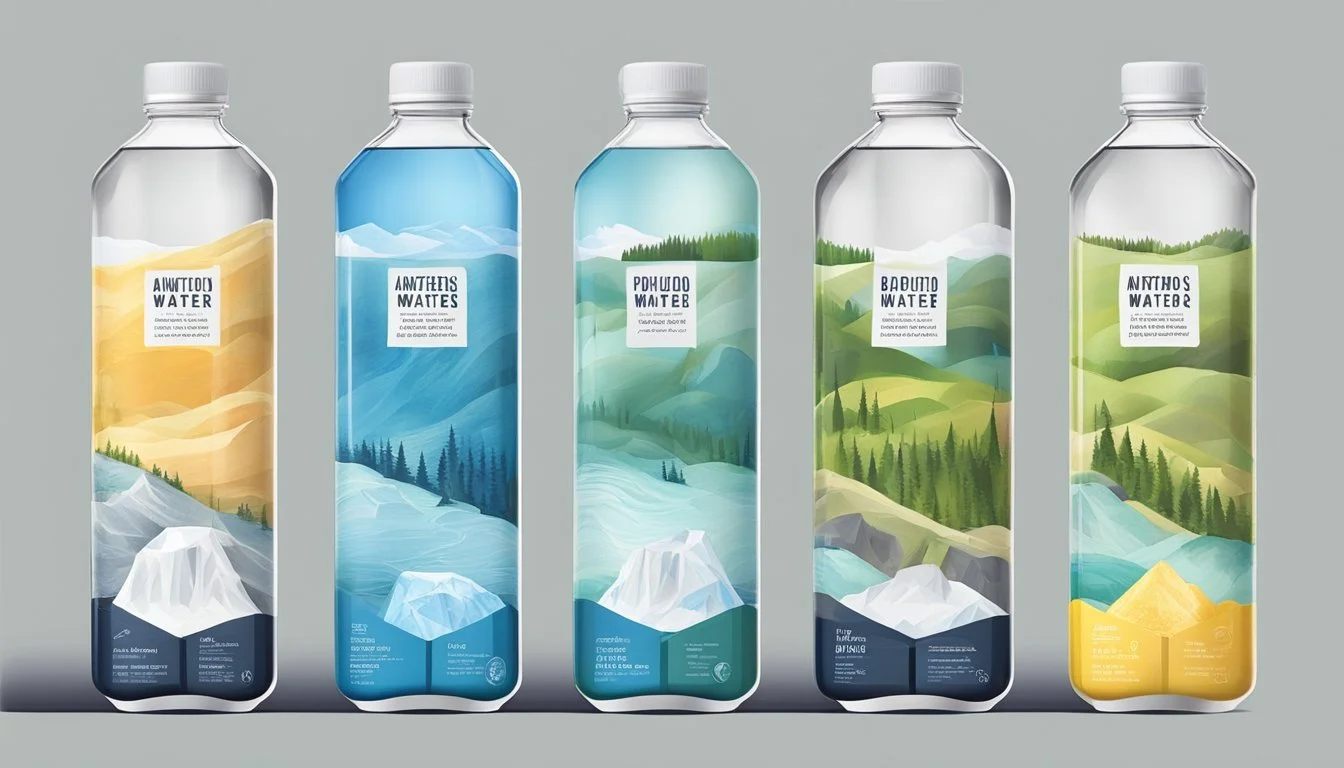Boxed Water vs. Antipodes
Ultimate Bottled Water Comparison
Comparing Boxed Water and Antipodes bottled water offers an intriguing perspective on eco-friendly hydration options. Consumer preferences often hinge on taste, environmental impact, and brand ethos. When comparing the two, Boxed Water stands out with its 92% plant-based packaging, making it an excellent choice for eco-conscious buyers.
Antipodes, a premium New Zealand brand, prides itself on offering ultra-pure, artesian water sourced from deep aquifers. The crisp, clean taste appeals to consumers seeking a luxurious drinking experience. Meanwhile, Boxed Water provides a refreshing alternative with its neutral flavor profile and innovative packaging, emphasizing sustainability without compromising quality.
Exploring the differences between these two water brands uncovers subtle nuances that may influence consumer choice. Boxed Water shines in minimizing plastic waste, while Antipodes delivers on purity and a premium drinking experience. Understanding these elements can guide environmentally aware and taste-sensitive consumers toward the best option for their needs.
Understanding Boxed and Bottled Water
Boxed water and traditional bottled water represent two different approaches to packaging and sustainability. The former aims to reduce environmental impact, while the latter has been the industry standard for decades.
The Development and Concept Behind Boxed Water
Boxed Water was introduced in 2009 as a sustainable alternative to traditional bottled water. Boxed Water Is Better cartons are composed of 74% paper, 1% aluminum, and 25% plastic, making them more eco-friendly than plastic bottles. The paper used comes from well-managed forests, ensuring sustainability.
The company claims their packaging is 92% plant-based. This innovative approach is meant to lessen the harmful environmental effects associated with plastic. The cartons are fully recyclable, lowering their footprint significantly. This move towards sustainability is a response to increasing consumer demand for eco-friendly products.
Traditional Bottled Water and Its Impact
Traditional bottled water, often packaged in plastic, has been predominant in the market for years. Brands like Poland Spring have set the standard. Plastic bottles are convenient but contribute heavily to environmental pollution.
Plastic production uses fossil fuels and generates significant emissions. Furthermore, plastic waste often ends up in landfills or oceans. While some companies have shifted towards recyclable or biodegradable materials, the problem persists. The eco-friendly initiatives by boxed water brands challenge the status quo, offering a more sustainable solution.
In summary, traditional bottled water offers convenience at the cost of environmental health, while boxed water strives to balance both needs, paving the way for a greener future.
Health and Hydration Benefits
Both Boxed Water and Antipodes offer unique features that contribute to hydration and wellness. Boxed Water emphasizes renewable packaging and eco-friendly options, while Antipodes highlights its mineral content and pristine source.
Hydration and Its Importance for Wellness
Proper hydration is crucial for maintaining bodily functions such as digestion, circulation, and temperature regulation. Water is essential for cellular activities and overall health. A hydrated body helps with energy levels, cognitive function, and skin health. Both Boxed Water and Antipodes claim to provide excellent hydration, but the source and packaging of water can influence its purity and benefits.
Comparing Health Benefits: Boxed Water vs. Traditional Bottles
Boxed Water is packaged with sustainable materials, being 92% plant-based. This limits environmental impact and potential exposure to plastic contaminants. While Boxed Water is designed to protect the product, it offers similar hydration benefits as traditional bottles.
Antipodes water, sourced from New Zealand aquifers, is rich in naturally occurring minerals. It contains essential electrolytes that aid in maintaining the body's electrolyte balance. Additionally, it features a higher pH, which some believe can benefit body pH balance.
Antipodes provides the added benefit of naturally occurring minerals like magnesium and calcium. These minerals are critical for bone health and metabolic functioning. Although Boxed Water offers environmental benefits, Antipodes may have an edge in mineral content.
Environmental Considerations
In analyzing the environmental considerations of Boxed Water and Antipodes, it's critical to examine the impact of their packaging and their sustainable production practices. Each aspect contributes to their overall environmental footprint and influences their global impact.
Assessing the Environmental Impact of Packaging
Boxed Water packaging consists of 74% paper, 1% aluminum, and 25% plastic film. This combination aims to reduce reliance on non-renewable resources. A bio-plastic cap made from plant-based plastic further enhances its eco-friendliness.
Carton recycling plays a vital role in determining the true environmental benefit. If carton recycling facilities are available, the environmental impact is significantly lower compared to single-use plastic bottles. This helps in reducing chemical leaching and the environmental footprint.
Antipodes, which uses high-quality glass bottles, focuses on recyclability. Glass is fully recyclable and can be reused multiple times, making it a robust alternative to single-use plastic bottles. It also doesn't leach chemicals, contributing to its sustainable profile.
Sustainable Production Practices of Water Brands
Boxed Water began in 2009 with a mission to shift from plastics to paper-based packaging. Its emphasis on using renewable resources and striving for a lower global impact underlines its commitment to sustainability. The company also supports environmental initiatives like tree planting and reducing carbon emissions in its production process.
Antipodes capitalizes on its natural artesian water source, emphasizing minimal environmental disruption. The water is bottled directly at the source, reducing transportation emissions. The use of locally sourced materials for glass bottles highlights their dedication to sustainable and ethical production practices.
Both brands have unique approaches to minimizing their environmental impact, presenting clear, eco-friendly packaging, and responsible manufacturing as core to their sustainability efforts.
Taste Profiles and Personal Preferences
Different factors influence the taste of boxed water and Antipodes bottled water, catering to various personal preferences in water consumption.
What Influences the Taste of Water?
The taste of water can be influenced by several key factors, including mineral content, pH levels, and source. Boxed Water often has an alkaline taste due to added minerals to balance its acidity. Antipodes, a premium brand, offers a crisp, clean taste owing to its natural filtration through volcanic rock, which adds subtle mineral notes.
Packaging also affects taste. Boxed Water's cartons can sometimes lend a neutral or slightly papery taste compared to glass bottles used by Antipodes, which preserve the water's pure qualities. These distinctions are crucial for consumers sensitive to taste variations.
Personal Preferences in Water Consumption
Personal preferences vary widely when it comes to water consumption. Some consumers prefer the crisp, mineral-tinged flavor of Antipodes, finding it refreshing and pure. Others may opt for Boxed Water for its alkaline and sometimes fruity notes, which can make it more palatable to those who dislike the taste of neutral water.
Environmental consciousness also plays a role, with Boxed Water appealing to those prioritizing sustainability. Antipodes' glass bottles are also recyclable but tend to attract consumers who prefer the aesthetic and taste-preserving qualities of glass. Personal preference is ultimately determined by a mixture of taste, environmental values, and packaging convenience.
Packaging Innovations and Consumer Trends
Both Boxed Water and Antipodes have embraced modern packaging trends to address environmental concerns and meet consumer preferences for sustainable options. The packaging materials and designs of these products reflect significant innovations aimed at reducing plastic waste and carbon footprints.
The Shift Towards Eco-Friendly Packaging
Boxed Water has set a benchmark with their packaging, which is predominantly made of paper, accounting for 74% of the material. This choice of material reduces the reliance on single-use plastic bottles. In addition, they use 1% aluminum and 25% plastic film, significantly minimizing environmental impact.
Just Water has similarly innovated by incorporating a bio-plastic cap made from sugarcane and using primarily paper-based cartons. This approach not only addresses ecological concerns but also appeals to eco-conscious consumers.
On the other hand, Antipodes offers a different eco-friendly solution with its glass bottle packaging. While heavier than its boxed counterparts, glass is fully recyclable and free from chemicals found in plastics, such as BPA.
Consumer Preferences and Market Demands
Consumers today increasingly prefer products that offer both sustainability and convenience. There is a growing trend towards using reusable water bottles and minimizing single-use packaging. Boxed Water’s cartons, and Just Water's renewable materials, tap into this demand by providing a greener alternative without sacrificing convenience.
Canned Water options are also gaining popularity as they are easily recyclable and often seen as more environmentally friendly compared to plastic bottles.
Meanwhile, Antipodes's glass bottles appeal to a niche market that values premium packaging and a purity promise. Their design highlights a commitment to both quality and sustainability, catering to consumers who are willing to pay a premium for eco-friendly and elegant packaging.
In conclusion, both Boxed Water and Antipodes are leading the way in responding to market demands for sustainable water packaging through their innovative and consumer-focused designs.
Brand Analysis: Boxed Water and Antipodes
Boxed Water and Antipodes are two distinct bottled water brands with unique missions and market strategies. They emphasize their unique selling points, including sustainability and product quality, which resonate with different segments of consumers.
Brand Mission and Values
Boxed Water focuses on environmental sustainability. The company uses cartons made from 74% paper sourced from sustainably managed forests. Their mission is to reduce plastic waste by providing a more eco-friendly alternative. Boxed Water also highlights its commitment to carbon neutrality and regularly participates in reforestation projects.
Antipodes, on the other hand, emphasizes purity and premium quality. Sourced from an underground aquifer in New Zealand, Antipodes water is naturally filtered over centuries through layers of rock. The company prides itself on providing exceptionally pure water in glass bottles to maintain the water's quality and ecological footprint.
Market Presence and Consumer Perception
Boxed Water markets itself as the eco-conscious choice among its competitors. It appeals strongly to environmentally-minded consumers and is often positioned against other sustainable brands like Flow and Core Hydration. Consumers appreciate the brand's clear commitment to sustainability, but some critique the taste and packaging durability.
Antipodes is positioned as a premium brand, often found in upscale restaurants and boutique hotels. It appeals to consumers seeking high-quality, pure water. The glass bottle packaging reinforces its premium image and differentiates it from more mainstream brands. Consumers generally perceive Antipodes as luxurious and trustworthy, with a noticeable focus on both quality and aesthetics.
Safety and Regulatory Aspects
Both Boxed Water and Antipodes adhere to strict safety and regulatory standards to ensure consumer protection. This includes rigorous quality control and compliance with established regulations.
Quality Control and Standards
Boxed Water implements federal quality standards established by the FDA, including the 1974 Safe Drinking Water Act, ensuring their products meet safety requirements. The packaging involves sustainable paper, aluminum, and plant-based plastics, aiming for recyclable and safe containers. This helps maintain the product's integrity and reduce environmental impact.
Antipodes, on the other hand, sources from natural springs and also adheres strictly to quality standards set by both U.S. and international regulations. They test for contaminants like microplastics and maintain low levels of sodium, ensuring the purity of their water. Quality control processes from sourcing to bottling are meticulously monitored.
Safety Considerations for Consumers
For Boxed Water, the use of plant-based plastics and aluminum ensures that the product remains waterproof and sealed before reaching consumers. However, it's crucial for consumers to verify that the carton is undamaged before use. The recyclable nature of the packaging adds another layer of safety consideration by promoting environmental responsibility.
Antipodes’s source from natural springs provides high purity, often cited for containing natural minerals beneficial for health. They emphasize purified water processes to eliminate potential contaminants. Regular testing for microplastics ensures that consumers receive a safe product. The focus on maintaining low sodium levels also addresses consumer health concerns related to excessive sodium intake.
Both brands prioritize safety through rigorous testing, ensuring their products are safe and meet high-quality standards for consumer peace of mind.
Socio-Economic Implications
The socio-economic implications of choosing Boxed Water over Antipodes water revolve around the environmental impact of transportation and the economic aspects of production. Both brands strive to stand out in their approaches to sustainability and cost management, influencing consumer choices.
The Impact of Water Transportation on the Environment
Transportation of bottled water significantly contributes to CO2 emissions. Boxed Water, with its predominantly paper-based packaging, tends to have a smaller carbon footprint compared to Antipodes, which uses glass bottles. Glass, while recyclable, is heavier, leading to higher emissions during transportation.
Landfills also benefit from the use of boxed water as it is easier to compact and requires less space compared to plastic bottles. The use of plastic bags in logistics for both boxed and glass water can be minimized. Consumers increasingly prefer brands that prioritize environmentally friendly options in their transportation processes.
Economic Aspects of Bottled Water Production
Production costs for Boxed Water and Antipodes are influenced by their packaging materials. Boxed Water's paper cartons, despite being more sustainable, can be more cost-effective due to lower material costs and ease of transport. Antipodes, with its premium glass packaging, targets a higher-end market willing to pay more for perceived quality and aesthetics.
Employment in the bottled water industry also plays a role. The labor involved in producing and transporting these products affects local economies. Companies that invest in sustainable practices may also see long-term cost savings, thus appealing to eco-conscious consumers who may be willing to pay a premium for ethically produced bottled water.
Competition in the bottled water market drives innovation in eco-friendly practices and influences pricing strategies. Both Boxed Water and Antipodes are impacting how consumers perceive the value and sustainability of bottled water options.
The Bottom Line
When comparing Boxed Water and Antipodes, several factors come into play.
Sustainability is a critical aspect. Boxed Water uses paper-based packaging and less plastic, aiming to reduce environmental impact. Antipodes, on the other hand, often uses glass bottles, a more recyclable material.
From a health perspective, both options offer clean, reliable hydration free from contaminants like plasticizers.
When considering the environment, recycling availability is essential. If carton recycling is limited, the sustainability of Boxed Water may be compromised.
Personal preferences also influence choice. Boxed Water's paper design appeals to some for its innovative approach, while others may prefer Antipodes's classic glass aesthetic.
For Americans, convenience plays a role. Boxed Water's carton can be more portable, whereas Antipodes's glass may be seen as premium but clunky.
Combining these aspects, both choices have their merits depending on individual priorities and local recycling facilities.










